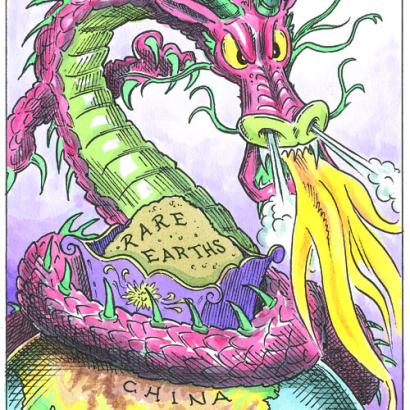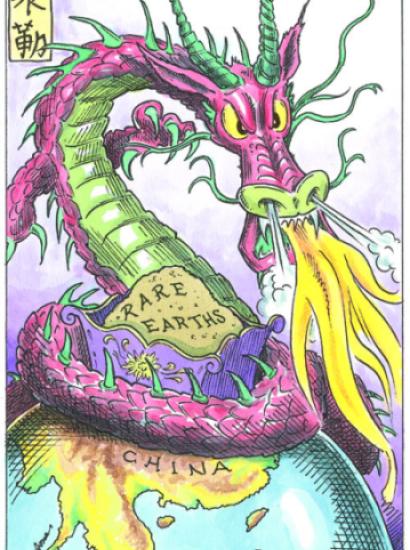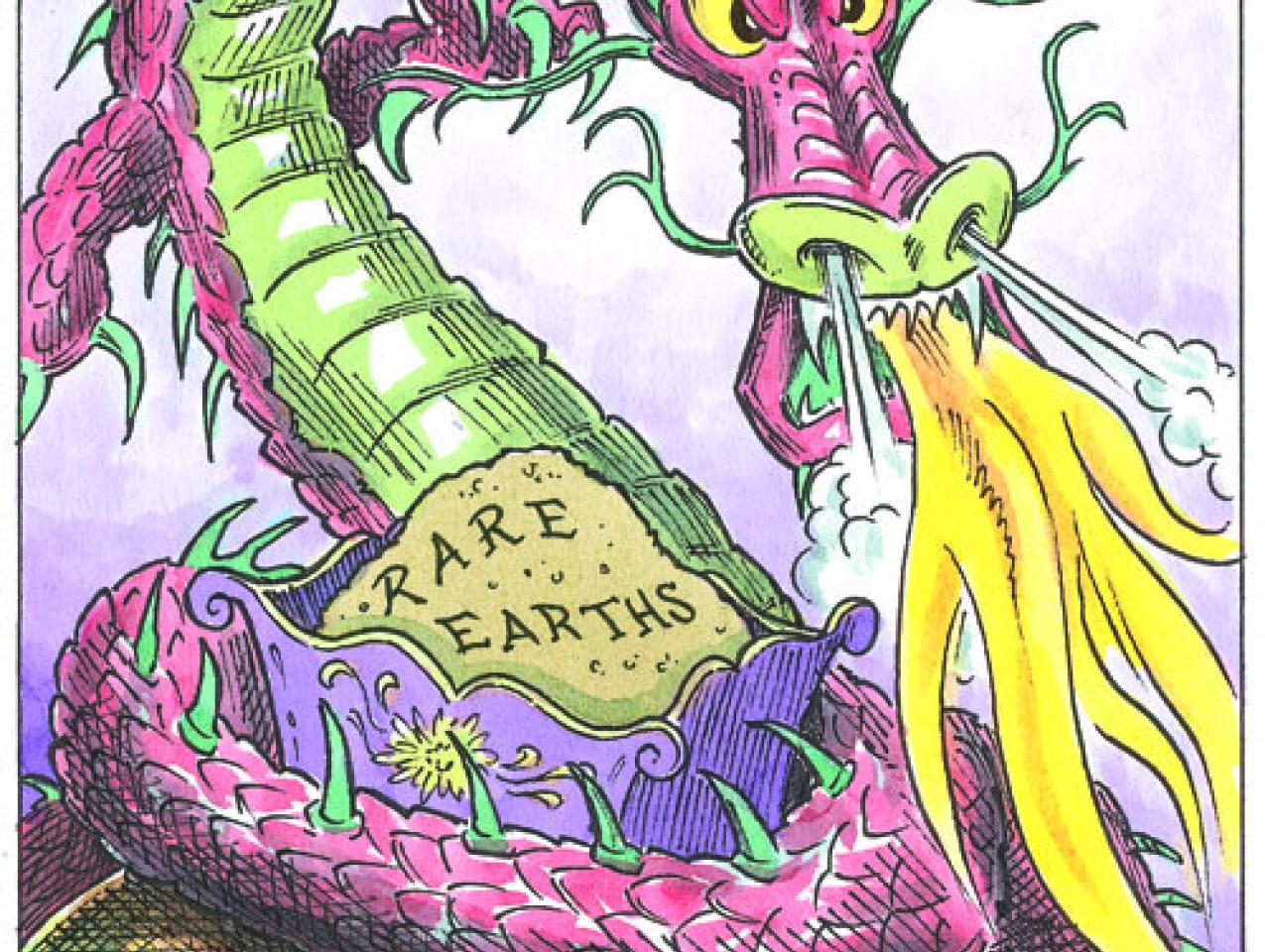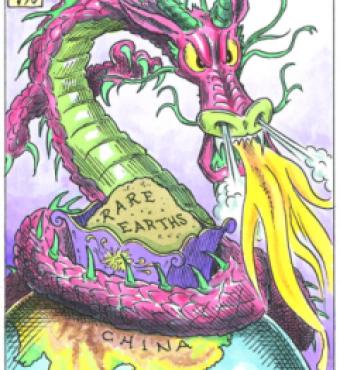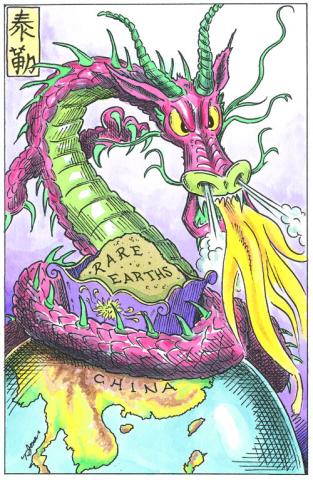- Economics
- Energy & Environment
- International Affairs
- US Foreign Policy
Beijing’s decision to temporarily cut off shipments of rare-earth minerals to Japan last year—apparently as part of a territorial dispute—raised a lot of concerns about the strategic implications of China’s growing economic strength. And well it should. Up to now, Beijing has worked hard to separate economics from politics on the world stage as part of a strategy to minimize global unease with its rise. That it is now willing to use an economic lever in a political matter suggests that this approach is changing in ways that could cause trouble for the rest of the world and for China itself.
The minerals embargo against Japan became publicly known on September 23, when the Japanese government reported that Chinese customs officials were stopping all shipments to Japan in the middle of a dispute over the two countries’ territorial claims to the Senkaku islands. On October 18, the export ban was extended to the United States and Europe. The news media speculated that China was reacting to the investigation that the Obama administration had opened on October 15 into whether China violated international trade rules with its restrictions on rare-earth exports.
China resumed the shipments to the United States and Europe on October 28 and to Japan on November 18. But the issue lingers: China mines 95 to 97 percent of the world’s supply of these resources and already had sharply reduced its export quotas for them in 2009 and 2010. At the time of the resumption, only three thousand to four thousand tons’ worth of quota remained, suggesting that shipments could stop again if the remaining quotas were filled.
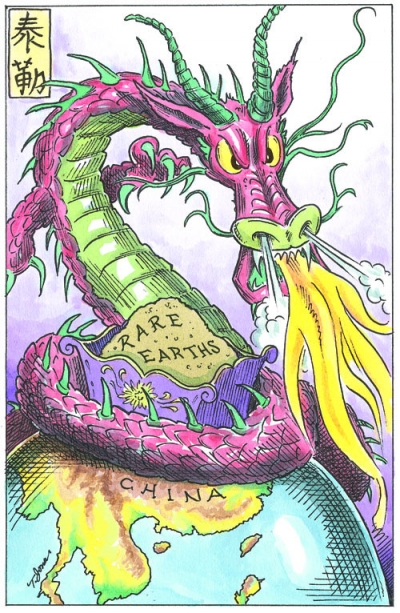
While China has manipulated trade flows for strategic aims in the past, this episode contains troubling new elements. The clearest previous example was the threat of economic sanctions against the United States last year. In January 2010, the Chinese defense ministry announced a series of retaliatory measures in protest of the Pentagon’s $6 billion arms sale to Taiwan, including sanctions on U.S. companies selling to Taiwan. The Chinese government argued at the time that the U.S. decision “seriously endangers China’s national security and harms China’s core interests.” In 2008, France was subject to a tourism boycott and various unofficial boycotts of French stores in China after President Nicolas Sarkozy met the Dalai Lama and demonstrators disrupted the Olympic torch relay in Paris to protest China’s policies in Tibet.
Yet those earlier economic measures fit into a discernible pattern. They showed that China would, like any other great power, employ all possible means at its disposal, including economic sanctions, to protect core interests. And it was well understood that Beijing views its core interests to include sovereignty and territorial claims over Tibet, Taiwan, and its Xinjiang region in the west. China’s economic measures were relatively targeted, and economic relations returned to normal after a ritual exchange of threats and protests restored the status quo ante.
The rare-earth case is different in three critical ways.
First, the incident demonstrates that Beijing’s list of “core national interests” is not fixed. Many experts would now agree that the South China Sea has joined the core-interest list. After the Senkaku incident, the international community is being asked to accept those islands as yet another core interest.
Given this development, it is natural to ask which issue will be next. It could be the Yellow Sea. Some recent articles in Chinese media suggest that the Korean Peninsula could also become a “core interest”; if true, that would pave the way for Chinese efforts to constrain American and South Korean responses to provocations from Pyongyang.
Second, the rare-earth embargo was much more aggressive than any economic sanctions China had employed to date. Starting in 1979, Beijing would tolerate or encourage warming economic ties with countries even if its political relations with them were chilly. Economic disputes tended not to spill over into the political sphere.
In June 2000, for example, Korea and China exchanged import sanctions in a dispute over their trade in garlic, but did not allow this dispute to affect their political relations. And threats of trade sanctions in response to political events were rare and predictable. This was a smart policy on Beijing’s part, since it allowed many East Asian countries to deepen economic ties despite lingering suspicions on the political side.
In contrast, there is no way anyone in Tokyo could have reasonably predicted that a territorial dispute over some islands would lead to a cutoff in the supply of minerals that are crucial to Japan’s high-tech economy. Both the cause of the sanctions and the scale of Beijing’s response are surprising.
Third, the rare-earth dispute is the first time Chinese sanctions have generated a significant level of countermoves from major trading partners to weaken China’s economic leverage over them. This suggests that China’s new strategy could lead to trade wars in a way that earlier economic responses never did.
Before now, trading partners were willing to take the temporary hit to trade, since they knew the episode would quickly blow over. This time, though, all major trading partners are seriously contemplating alternatives to Chinese markets in rare-earth supplies. Japan, naturally, has been most active in looking for alternative sources, signing agreements with Vietnam and Australia to develop new mines or renewing production in existing mines.
The effects of this shift in China’s attitude toward economic sanctions may not be evident immediately. For now, the rare-earth case resembles earlier incidents insofar as trade appears to be returning to normal only a few months after the trouble started. But it should raise some serious questions on both sides.
Beijing must remember the benefits it has reaped from separating the political from the economic aspects of its rise. If nothing else, counterparts abroad will be more likely to treat Beijing with respect if they see Chinese leaders behaving responsibly on economic policy. But foreign leaders also should understand that if China does not change course, they may find themselves facing unexpected economic challenges as disputes pop up in the political sphere. The best way to preserve strategic room to maneuver may be to look for alternatives to total economic reliance on China.








